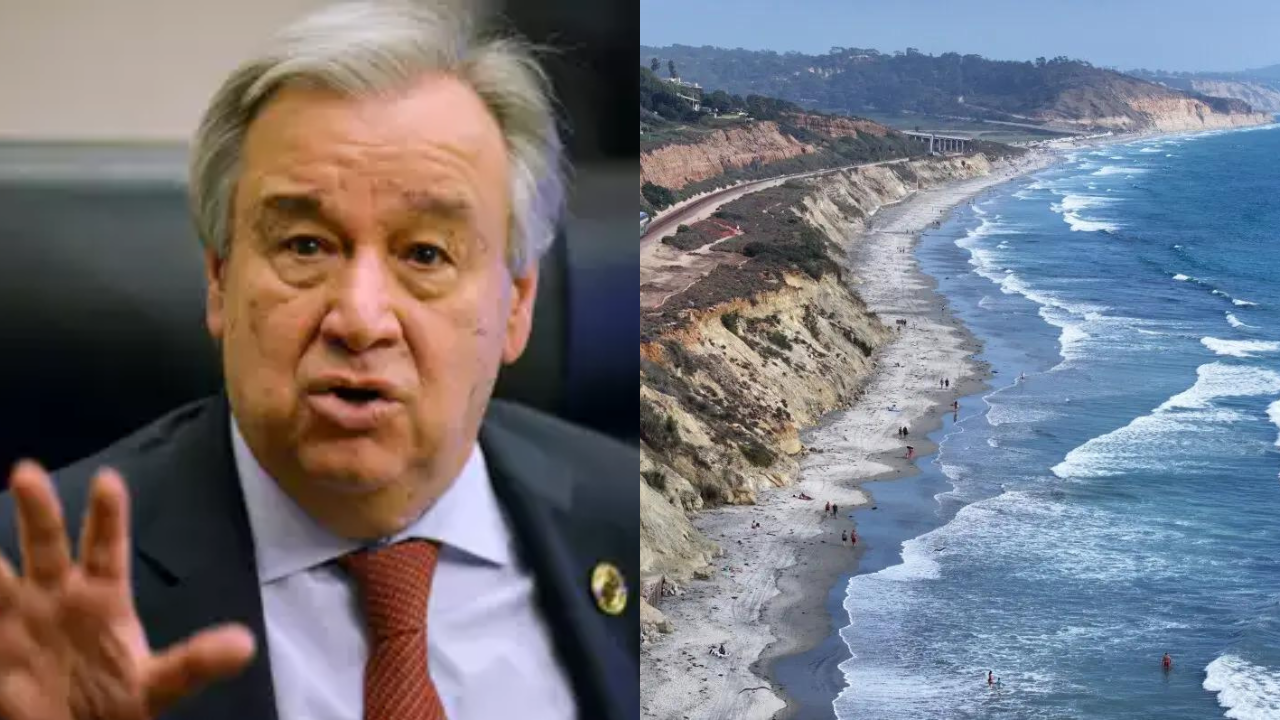At the Pacific Islands Forum, UN Secretary-General António Guterres reported that sea-surface temperatures in the south-west Pacific have risen three times faster than the global average since 1980, according to the World Meteorological Organisation (WMO). He issued a warning that Pacific island nations are in “grave danger” from rising sea levels and urged immediate global action to address this urgent crisis.
“This is a crazy situation. Rising seas are a crisis entirely of humanity’s making, a crisis that will soon swell to an almost unimaginable scale, with no lifeboat to take us back to safety. But if we save the Pacific, we also save ourselves.” said Guterres.
A second UN report warns that the climate crisis and rising sea levels are urgent threats to Pacific island states, with future sea-level rise potentially more severe than expected. The IPCC has noted unprecedented global sea-level rise due to human-caused warming. Last year, 34 storm and flood events in the region led to over 200 deaths and affected more than 25 million people.
Rufino Varea, regional director of the Pacific Islands Climate Action Network, said Pacific communities are “enduring some of the world’s worst climate impacts despite contributing the least to the crisis.” Michelle Higelin, executive director of ActionAid Australia, highlighted that the climate crisis is increasing debt in Pacific countries and worsening gender inequality.
Guterres highlighted the extreme vulnerability of Pacific islands, where 90% of the population lives near the coast and much of the infrastructure is close to the sea. He warned that a 3°C rise in global temperatures could lead to 15 centimetres of additional sea-level rise by mid-century, with over 30 days of coastal flooding each year in some areas.
He urged the world to cut emissions sharply and phase out fossil fuels quickly. Guterres also called for much more financial support for vulnerable countries to help them deal with the impacts of rising sea levels.
Australia has promised $3 billion for climate finance until 2025, but this is less than its share of the US$100 billion goal, which is about A$4 billion per year.
The climate crisis will be a major topic at the COP29 summit in Azerbaijan this November. As the US$100 billion annual climate finance pledge ends, ActionAid Australia and Oxfam Australia are urging Australia to support a new US$1 trillion global climate finance goal.
“This is a crazy situation. Rising seas are a crisis entirely of humanity’s making, a crisis that will soon swell to an almost unimaginable scale, with no lifeboat to take us back to safety. But if we save the Pacific, we also save ourselves.” said Guterres.
A second UN report warns that the climate crisis and rising sea levels are urgent threats to Pacific island states, with future sea-level rise potentially more severe than expected. The IPCC has noted unprecedented global sea-level rise due to human-caused warming. Last year, 34 storm and flood events in the region led to over 200 deaths and affected more than 25 million people.
Rufino Varea, regional director of the Pacific Islands Climate Action Network, said Pacific communities are “enduring some of the world’s worst climate impacts despite contributing the least to the crisis.” Michelle Higelin, executive director of ActionAid Australia, highlighted that the climate crisis is increasing debt in Pacific countries and worsening gender inequality.
Guterres highlighted the extreme vulnerability of Pacific islands, where 90% of the population lives near the coast and much of the infrastructure is close to the sea. He warned that a 3°C rise in global temperatures could lead to 15 centimetres of additional sea-level rise by mid-century, with over 30 days of coastal flooding each year in some areas.
He urged the world to cut emissions sharply and phase out fossil fuels quickly. Guterres also called for much more financial support for vulnerable countries to help them deal with the impacts of rising sea levels.
Australia has promised $3 billion for climate finance until 2025, but this is less than its share of the US$100 billion goal, which is about A$4 billion per year.
The climate crisis will be a major topic at the COP29 summit in Azerbaijan this November. As the US$100 billion annual climate finance pledge ends, ActionAid Australia and Oxfam Australia are urging Australia to support a new US$1 trillion global climate finance goal.
Source : Times of India









